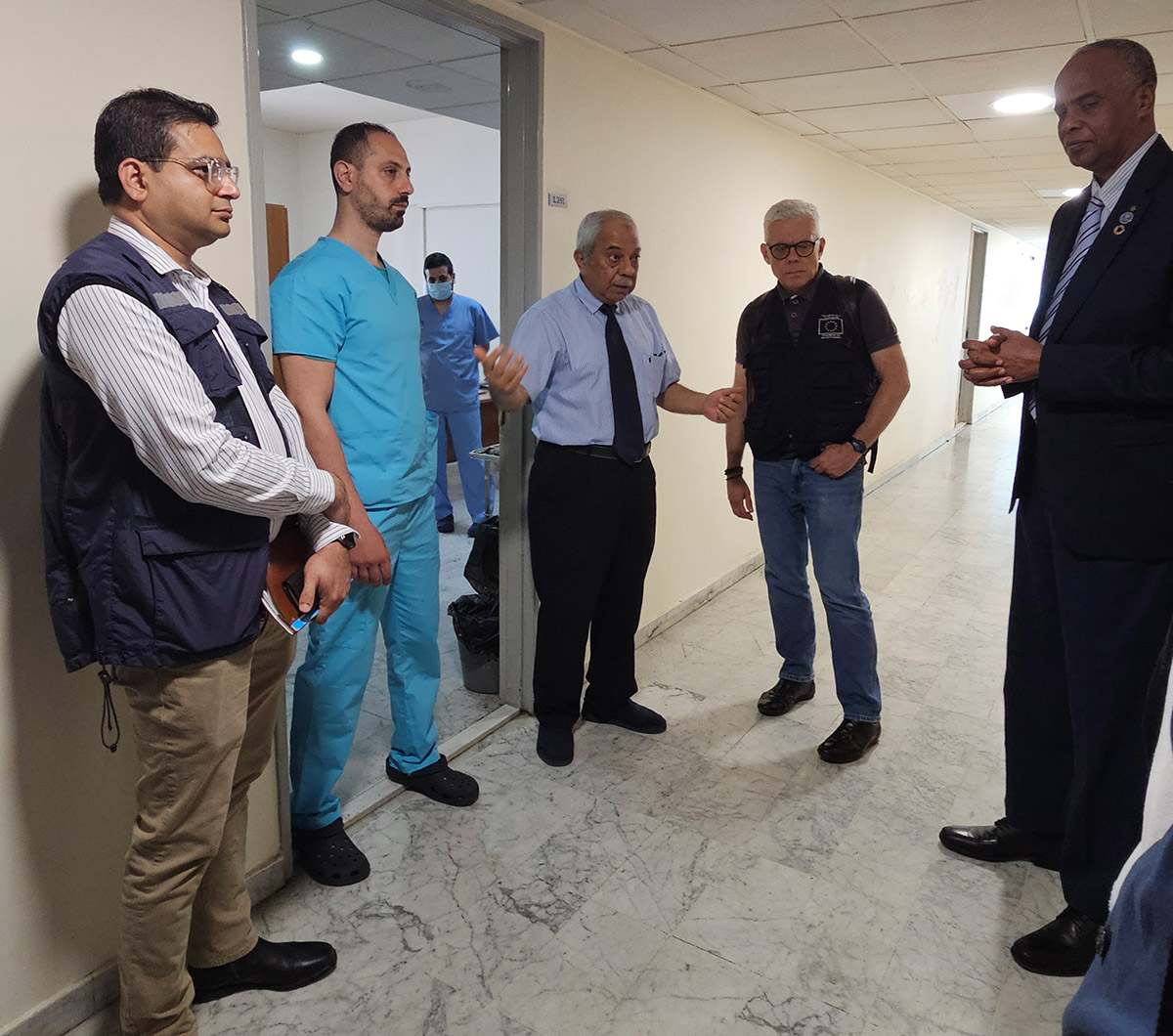
3 June 2024 – An important visit to Rafik Hariri University Hospital (RHUH) took place on 17 May 2024 to assess the state of Lebanon’s largest public hospital. WHO Representative to Lebanon Dr Abdinasir Abubakar led a technical team from the WHO Country Office in Lebanon.
This team accompanied a delegation from the European Civil Protection and Humanitarian Aid Operations (ECHO), headed by its Director-General Mr Maciej Popowski.
RHUH has a capacity of 430 beds, but only just over 200 beds are currently functional owing to lack of sufficient funds – including for enough health workers – to maintain the full capacity. RHUH was the first hospital in the Eastern Mediterranean Region to carry out liver and kidney transplant operations, back in 2004. All hospital services are available at RHUH, including mental health care in the new psychiatric ward, which has space for 8 patients at present.
The visit began with a briefing for the ECHO delegation by RHUH Director Dr Jihad Saade and WHO Representative Dr Abubakar on the humanitarian situation and the limited financial resources in Lebanon, and the impacts on the health system. They discussed challenges and gaps reported at hospital level and the status of vulnerable populations (nationals and non-nationals) who seek hospital care.
ECHO is a donor focused on humanitarian assistance and urgent needs identified in the country for the most vulnerable groups, both from within Lebanon and elsewhere. ECHO funds WHO’s life-saving and limb-saving hospitalization programme to support hospitalization of the most vulnerable for emergency admissions of this nature.
This programme helps increase access to care, reduce morbidity and mortality, and prevent people falling into poverty owing to catastrophic health care expenditures. It also focuses on the provision of quality care during hospitalization, with proper referral to affordable follow-up services on discharge wherever possible.
The visit ended with a tour of the hospital’s main wards, taking in the emergency room, intensive care unit, newborn and paediatric intensive care units, internal medicine ward and the newly established psychiatric ward.
Almost 40% of patients at RHUH are Syrian refugees. With funding for refugees and other vulnerable groups at risk of being reduced, Dr Abubakar pointed out the impact this would have on hospital and health services for everyone. “We have to see how we can better minimize the impact on the health services,” said Dr Abubakar, promising to advocate with donors and government to ensure that health care is uninterrupted and accessible to all in Lebanon.


